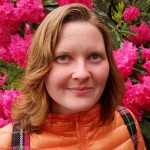Program on Science, Technology and Society at HarvardHarvard Kennedy School of Government | Harvard University |
|||||||||
|
|
Margarita (Margo) Boenig-Liptsin is a Research Associate at the Program on Science, Technology & Society (STS). She continuing the work she began as a Postdoctoral Fellow (2015-2016) with Sheila Jasanoff on a National Science Foundation funded project, “Traveling Imaginaries of Innovation: The Practice Turn and Its Transnational Implementation.” The project examines how three models of innovation have become go-to answers for socioeconomic challenges confronting 21st century nations. By studying how these innovation models become transferable entities that are implemented in cities around the world, the project is interested in what the importation of a given model reveals about how the importing society perceives itself and in the compatibility between local developments and the innovative promises of the models. This project develops Margo’s deep interest and previous work on the formation of human subjectivities and social orders with developments in science and technology in different cultural contexts. Margo completed her PhD in History of Science from Harvard University (2015) with a Secondary Field in STS and a concurrent degree in Philosophy from the Université Paris 1–Pantéon-Sorbonne. In her dissertation, “Making Citizens of the Information Age: A comparative study of the first computer literacy programs for children in the United States, France, and the Soviet Union, 1970-1990,” she asked: What are the constitutions of the human in the computerized world? She studied what politicians and computer pioneers in the United States, France, and the Soviet Union envisioned the general public, and in particular children, need to know about computers so that they might become citizens of the anticipated information society at a moment in history when the personal computer was just emerging on the world stage. She found that to become computer literate or cultured meant, generally, to learn to think and be with computers by incorporating various aspects of the personal computer as a cognitive enhancement, as a culture, or as a partnership. The varied ways in which different societies used the computer to imagine their futures suggest that, more than a tool of the intellect, the computer is a tool of the imagination. Margo holds a B.A. from Stanford University in International Relations with a minor in Economics and Honors in Interdisciplinary Studies in the Humanities. Methods and ideas from STS, intellectual and cultural history, anthropology, and philosophy (Continental and from the Slavic tradition) inform Margo’s projects, which invariably have a strong normative component to keep research relevant to living responsibly in the contemporary world. Publications Boenig-Liptsin, M. and J. Benjamin Hurlbut “Technologies of Transcendence at Singularity University,” Perfecting Human Futures: Innovation, Secularization and Eschatology, ed. J. Benjamin Hurlbut and Hava Tirosh-Samuelson. Dordrecht: Springer (forthcoming). Boenig-Liptsin, M. “Croissance exponentielle,” in Technosciences bourdonnantes: Réflexions sur quelques buzzwords, translated by Philippe Bardy, ed. Bernadette Bensaude-Vincent, Alliage, 72, pp. 74-83 (2013).
Note: The above information concerns a past fellow at the Program on Science, Technology, and Society at the Harvard Kennedy School. It does not constituent evidence of current enrollment. The information may be out of date. To update their information, past fellows should e-mail the site administrator.
|
||||||||
